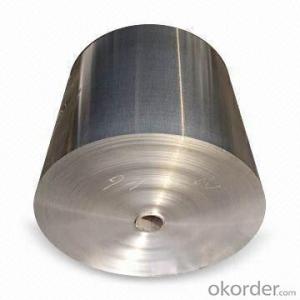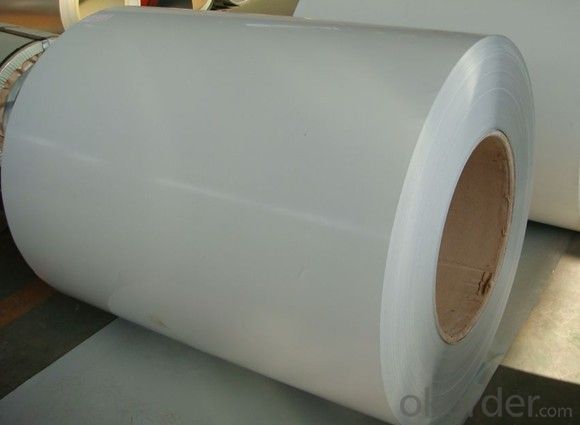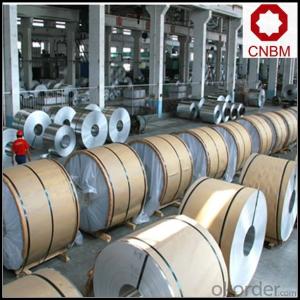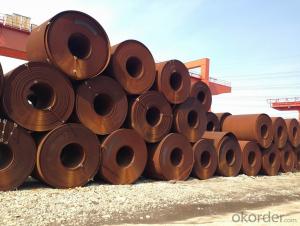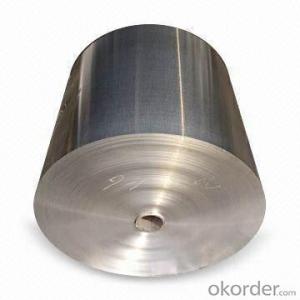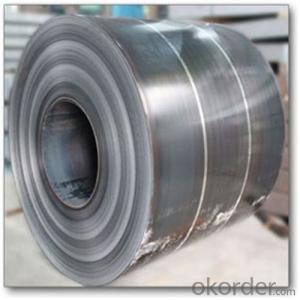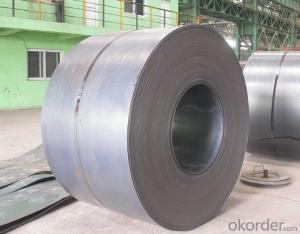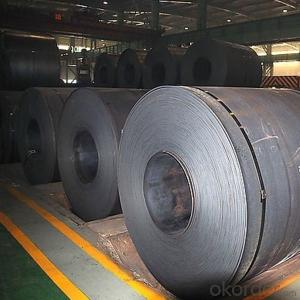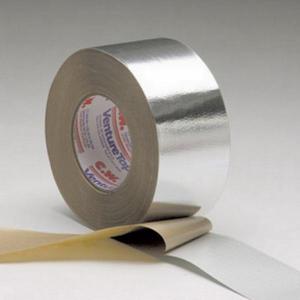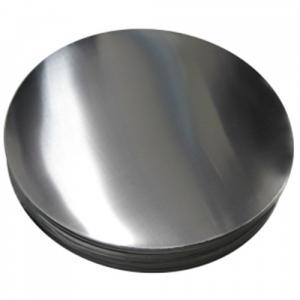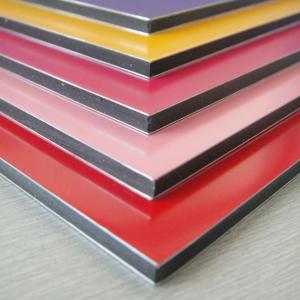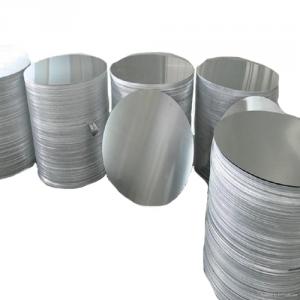Aluminum Hot Rolled Coils for Tanker and Trailer Manufacturing
- Loading Port:
- Shanghai
- Payment Terms:
- TT OR LC
- Min Order Qty:
- 5 m.t.
- Supply Capability:
- 100000 m.t./month
OKorder Service Pledge
OKorder Financial Service
You Might Also Like
Specification
Product Description
Alloy: 5052(AlMg2.5)
Temper: O,H12,H22,H32,H14,H24,H34,H16,H26,H36,H18,H38,F
CHEMICAL COMPOSITION LIMITS (%)
Silicon | Iron | Copper | Manganese | Magnesium | Chromium | Nickel | Zinc | Titanium | Others | Total | Aluminum |
0.25 | 0.4 | 0.10 | 0.10 | 2.2-2.8 | 0.15-0.35 | 0.10 | 0.05 | 0.15 |
Remainder |
Main application: Magnesium gives this alloy its enhanced corrosion resistance, workability, strength and weldability. Typical uses include aircraft fuel tanks, container body, truck/trailer body, electronic mounting plates and panels, fan blades, refrigeration liners, storm shutters and utensils.
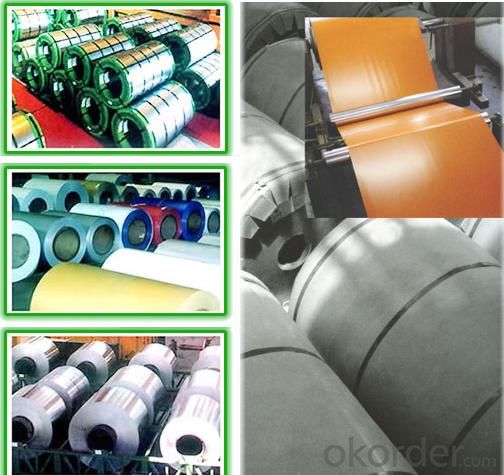
Mechanical Property Limits
Alloy | Temper | Thickness(mm) | Tensile Strength(MPa) | Elg%(50mm) |
5052 | O | >0.5-0.8 >0.8-1.3 >1.3-6.5 >6.5-10.0 | 170-215
| ≥15 ≥17 ≥19 ≥18 |
H12/H22/H32 | >0.5-1.3 >1.3-4.5 | 215-265 | ≥5 ≥7 | |
H14/H24/H34 | >0.5-0.8 >0.8-1.3 >1.3-4.5 | 235-285 | ≥3 ≥4 ≥6 | |
H16/H26/H36 | >0.5-0.8 >0.8-4.5 | 255-305 | ≥3 ≥4 | |
H18/H38 | >0.5-0.8 >0.8-4.5 | ≥270 | ≥3 ≥4 | |
H112 | >4.5-6.5 | ≥195 | ≥9 ≥7 | |
>6.5-12.5 | ≥195 | |||
>12.5-40.0 | ≥175 | |||
>40.0-80.0 | ≥175 |
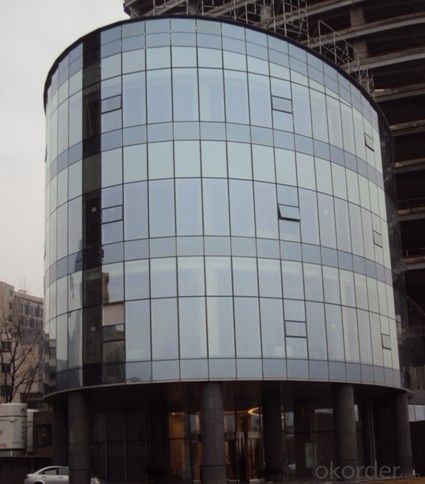
Our Services
Payment: by 30%T/T in advance and balance before shipment or 100% L/C at sight
Delivery: within 30 days after we get your deposit or L/C.
Packing: sea worthy wooden pallet
Loading port: Qingdao/Shanghai/Tianjin, China
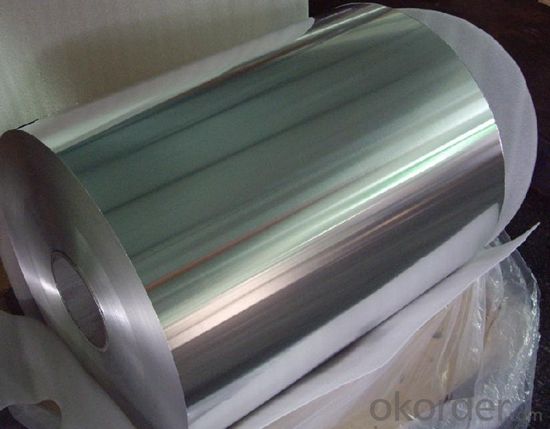
- Q: Is there a new technology available for recycling aluminum?
- <p>Yes, new technologies are being developed and implemented for recycling aluminum more efficiently. One such technology is the use of advanced sorting systems that can separate different types of metals, including aluminum, from waste streams. Additionally, there are innovations in the smelting process that reduce energy consumption and emissions. For instance, some companies are using inert anodes in the electrolytic process to produce aluminum, which can significantly lower the carbon footprint. These advancements not only make aluminum recycling more environmentally friendly but also more economically viable.</p>
- Q: Is it possible to repurpose or reuse old aluminum foil for various uses?
- <p>Yes, old aluminum foil can be repurposed for various uses. It can be recycled, used as a makeshift scrubber for cleaning, or as a reflector for grilling. You can also use it to cover food for storage or as a barrier in gardening to deter pests. However, it's important not to reuse foil that has held acidic or sugary foods, as it can corrode and release aluminum into the food. Always ensure the foil is clean and in good condition before repurposing.</p>
- Q: Is it possible to create jewelry using pure aluminum?
- <p>Yes, pure aluminum can be used to make jewelry, but it's not commonly used for fine jewelry due to its lower value and potential for oxidation. While it is lightweight and affordable, it lacks the luster and durability of precious metals like gold, silver, or platinum. Aluminum can tarnish and may cause allergic reactions in some individuals. It is more commonly used in costume jewelry or for specific designs where its properties are advantageous.</p>
- Q: This question asks about the chemical reactions of aluminum with acids and alkalis under various conditions.
- <p>Aluminum reacts differently with acids and alkalis depending on the specific environment. In the presence of acids, such as hydrochloric or sulfuric acid, aluminum undergoes a redox reaction where it loses electrons and forms aluminum ions (Al^3+). The reaction can be represented as: 2Al + 6HCl 鈫?2AlCl鈧?+ 3H鈧? With alkalis, aluminum reacts to form aluminate ions and hydrogen gas. This reaction is represented as: 2Al + 2NaOH + 6H鈧侽 鈫?2NaAl(OH)鈧?+ 3H鈧? The rate of these reactions can be influenced by factors such as temperature, concentration, and the presence of catalysts.</p>
- Q: Explain how aluminum influences the propagation of sound waves.
- <p>Aluminum has a high density and stiffness, which makes it an effective conductor of sound. When sound waves hit an aluminum surface, the vibrations are quickly transmitted through the material due to its low internal damping. This results in a clear and efficient transfer of sound energy. However, aluminum's high reflectivity can also lead to a significant amount of sound being reflected rather than absorbed, which can affect the acoustics in a space, potentially causing echoes or reducing sound absorption. Additionally, aluminum's conductivity can lead to a faster decay of sound within the material, impacting the duration and quality of sound transmission.</p>
- Q: Explain the impact of adding magnesium to aluminum alloys on their characteristics.
- <p>Adding magnesium to aluminum alloys significantly enhances their strength, especially in the form of heat-treatable alloys known as Al-Mg or 5000 series alloys. Magnesium increases the alloy's resistance to corrosion, improves its formability, and raises its mechanical strength. These alloys are often used in applications requiring high strength-to-weight ratios, such as in the aerospace and automotive industries. The addition of magnesium also improves the alloy's weldability and resistance to stress corrosion cracking. However, it's important to note that excessive magnesium can lead to reduced ductility and increased susceptibility to stress corrosion cracking, so the amount added must be carefully controlled.</p>
- Q: Explain how the production process of recycled aluminum differs from that of new aluminum, focusing on energy consumption and environmental impact.
- <p>The production process for recycled aluminum is significantly less energy-intensive compared to the production of new aluminum. Producing new aluminum from bauxite ore requires high temperatures and substantial energy, often from fossil fuels, to smelt the ore and extract the metal. This process emits greenhouse gases and consumes large amounts of electricity. In contrast, recycling aluminum involves melting down existing aluminum products, which requires only about 5% of the energy needed to produce new aluminum. This process is more environmentally friendly, as it reduces energy consumption, lowers greenhouse gas emissions, and conserves natural resources by decreasing the need for raw materials.</p>
- Q: Explain the differences between aluminum and other metals concerning their ability to degrade or break down in the environment.
- <p>Aluminum is not biodegradable in the traditional sense, meaning it does not break down into simpler substances through natural processes. It is highly resistant to corrosion and can persist in the environment for a long time. Unlike metals like iron, which rust and degrade over time, aluminum remains largely intact. However, aluminum can react with other elements in the environment, such as oxygen, to form a thin layer of aluminum oxide on its surface, which can alter its properties. Other metals like magnesium and zinc are more biodegradable as they can corrode and break down more readily in certain conditions, contributing to their use in biodegradable materials.</p>
- Q: This question asks about the process of producing aluminum, a common metal known for its lightweight and corrosion resistance.
- <p>Aluminum is made through a process called electrolysis. The primary source of aluminum is bauxite ore, which is first refined to produce aluminum oxide. This aluminum oxide is then dissolved in a molten cryolite bath and subjected to electrolysis. A large electric current is passed through the bath, causing the aluminum oxide to break down into aluminum metal and oxygen gas. The aluminum metal sinks to the bottom of the cell and is then tapped off and further processed. This process, known as the Hall-H茅roult process, is the predominant method for producing aluminum on an industrial scale.</p>
- Q: What specific rules or guidelines are there for incorporating aluminum in construction projects?
- <p>Yes, there are special regulations for using aluminum in construction projects. These regulations vary by country and region but generally include standards for material properties, structural integrity, fire resistance, and environmental impact. For instance, the American Society for Testing and Materials (ASTM) and the Aluminum Association provide guidelines for aluminum usage in construction. Compliance with building codes is crucial, and these codes often specify the grades of aluminum, allowable stress values, and methods of joining. Additionally, considerations for corrosion resistance, thermal expansion, and recycling potential are important. It's essential to consult local building codes and industry standards to ensure compliance when using aluminum in construction.</p>
Send your message to us
Aluminum Hot Rolled Coils for Tanker and Trailer Manufacturing
- Loading Port:
- Shanghai
- Payment Terms:
- TT OR LC
- Min Order Qty:
- 5 m.t.
- Supply Capability:
- 100000 m.t./month
OKorder Service Pledge
OKorder Financial Service
Similar products
Hot products
Hot Searches
Related keywords
